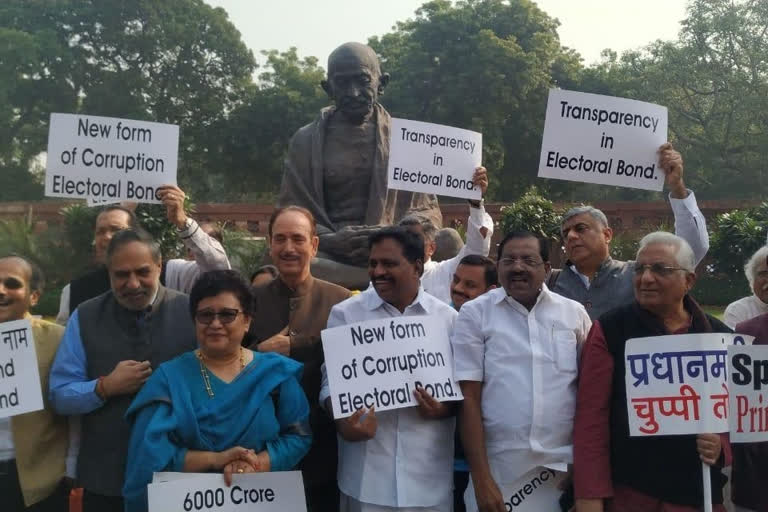New Delhi: Few days ago, in a written reply, Minister of state for Finance Anurag Thakur informed the house that Election Commission of India is not in favour of state funding of elections. He stated, "The Election Commission has informed the government that it is not in favour of State Funding as it will not be able to check candidates own expenses or expenditure by others over and above that which is provided by the state."
Thakur said that the commission's view is that for addressing the real issues, there have to be radical changes in the provisions regarding receipt of funds by political parties and the manner in which such funds are spent by them so as to provide complete transparency in the matter. The Election Commission in a way has turned down Prime Minister's suggestion for state funding of elections which he expressed soon after demonetisation was introduced in 2016, besides advocating for simultaneous elections for Lok Sabha and State assemblies to reduce corruption and save time of the government and election machinery.
Though ECI may have stated its view against state funding of election, but the Minister stated the government is committed to bring about curbing the role of money power in Indian elections and bringing about transparency in political funding. He stated that in order to discourage cash transactions and bring transparency in the sources of political funding, the government has amended the Income Tax Act and restricted anonymous cash donations up to a maximum of Rs. 2000. He also mentioned that government had introduced electoral bonds in 2018 to establish transparency in political funding in Indian with well-established audit trails. But the question is, have changes in the laws introduced by the government, especially electoral bonds, helped in bringing about transparency in political funding?
A closer look at how political parties manage to receive funding through electoral bonds suggest that instead of bringing about transparency, they have resulted in making the political funding much more secretive and advantageous for well-established bigger political parties. The newly established smaller regional parties are at the receiving end.
Read:RBI had no objection to issuance of electoral bonds through SBI: FM
The new system of funding political parties through electoral bond introduced in January 2018 suggests, any Indian citizen or a company based in India can buy electoral bonds from select branches of State Bank of India issued in denominations of one thousand, ten thousand, one lakh, ten lakhs and one crore and donate it to political parties of their own choice within fifteen days. Political parties encashing it should have secured at least one per cent votes of the total votes polled in the most recent election, either of state assembly or general elections. This poses a serious challenge for the newly registered political parties as it is not easy to receive one percent votes, while it gives an edge to established political parties having popular support.
The electoral bonds do not even help in bringing transparency in political funding. As per law, the identity of those donating the bonds to political parties is to be kept secret. Rather than helping curb role of black money in politics, the secrecy of identity would encourage individuals and companies to re-route their black money for donations to political parties. In last few years, in lieu of ameliorating the electoral process, we have only ended up making the system opaquer and more closed while little has been done in the form of actual reforms. The Foreign Contribution (Regulation) Act (FCRA) amendments allowing foreign funding of political parties is a dangerous progression. Contributions coming from such sources could be dubious in nature and conceal the identity of the funder. In the long run, the money flowing in our country from foreign countries might even indirectly influence our political system.
